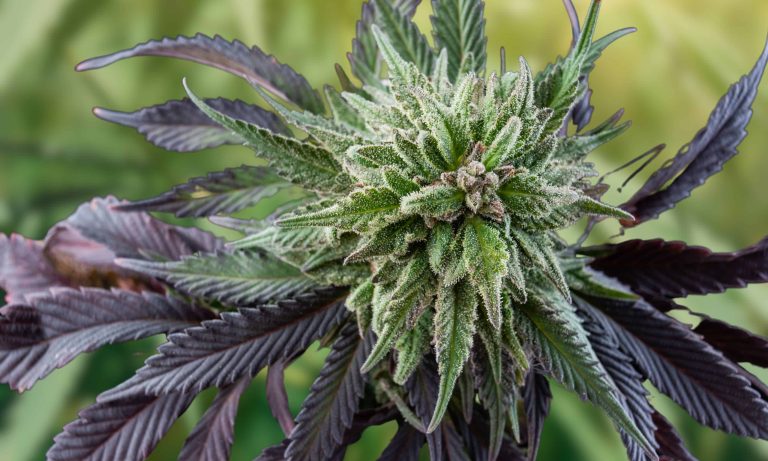Maine’s regulated adult-use cannabis industry generated more than $200 million in sales last year, an increase of 36% over 2022, according to information from the state Office of Cannabis Policy. But cannabis business owners who feel that Maine’s cannabis market is becoming oversaturated say that the numbers obscure the challenges licensed operators will face in the not-too-distant future.
Maine’s licensed recreational marijuana retailers rang up 3.7 million transactions in 2022, raking in about $217 million in the process, according to information released by state regulators on Monday. The yearly total represents a 36% increase over the $159 million in sales recorded in 2022.
John Hudak, director of the Office of Cannabis Policy, said the 2023 numbers do not tell the whole story about the health of Maine’s cannabis industry.
“The sales numbers are up almost 40%. That’s a strong testament to how the industry continues to grow,” Hudak told the Portland Press Herald. “But hidden in these numbers, too, is a pretty significant decrease in price.”
Cannabis prices decreased by about 16% overall in 2023, Hudak said, a drop that indicates that Maine’s cannabis growers are producing too much weed. While consumers appreciate the lower prices, the drop in profits can be bad news for producers and retailers.
“Even with the increases in overall sales, the decreased prices do make it harder to operate,” Hudak said. “Eventually we’re going to see business closures.”
The Maine legislature legalized recreational marijuana sales in 2018, with licensed sales of adult-use cannabis beginning in October 2020. Earlier legislation that legalized personal possession and home cultivation of cannabis went into effect in 2017.
Prices Dropped More Than 50%
The early days of regulated recreational marijuana sales in Maine saw limited supply, resulting in high prices for consumers at the state’s retailers. But as more licensed operators ramp up their businesses, oversupply has become a significant issue for Maine’s legal cannabis industry.
The average price of a gram of smokable cannabis flower was $16.68 when recreational marijuana sales began three years ago. In December of last year, the price had dropped to $7.53 per gram.
Mark Benjamin, owner of the Botany cannabis dispensary in Rockland, said foot traffic has climbed steadily since he opened the shop in late 2021. But with falling prices coinciding with an increase in licensed retailers, he and his staff have created new incentives to encourage customers to spend more.
“There may be tens of millions of dollars flowing into (the market), but it is certainly spread out across more stores,” said Benjamin.
With his business thriving, Benjamin is set to open a new Botany shop in Belfast, Maine in the next few days. But he acknowledges that some business owners have had a more difficult time succeeding, particularly those who do not have ready access to capital.
“Everyone was dropping and dropping their prices in order to get enough cash in the door to cover their costs,” he said. “The weaker players are starting to drop out of the market,” he said.
Hayden Stokes and Zach Dolgos are the owners of The Happy Canary, a cannabis cultivator that has been supplying Maine’s medical cannabis industry for the last six years. In December, they opened their Blue Lobster dispensary in Casco, Maine, the town’s first recreational marijuana retailer. Stokes said they hope to gain the license needed to grow for the adult-use market soon, seeing vertical integration as the key to the company’s success.
“Having our own retail is a big part of the solution,” he said. “When you have your own retail, you can set your own fate.”
Hudak said that he believes that Maine’s cannabis industry will see a few more years of sales growth before the yearly total begins to plateau. David Vickers, owner of Origins Cannabis Company in Augusta and Manchester, said that he believes much of the industry’s growth will come from southern coastal towns.
“You’re going to continue to see people flocking to Maine,” he said. “I don’t think we’ve hit the summit yet, but I think we’re certainly getting there. There are only so many people in Maine.”
Vickers, Stokes and Benjamin all operate businesses that serve or will soon serve both the recreational and medical cannabis markets. They believe many medical marijuana businesses will soon either switch to recreational marijuana or end operations completely.
In April, the Office of Cannabis Policy released a report warning about a “mass exodus” of the industry’s medical caregivers. In 2016, the number of caregivers hit a peak of about 3,250. By December 2023, the number had fallen to 1,763.
“I’m seeing the medical side suffering as the recreational side increases,” Vickers said. “That to me, long term, may not be a good thing for Maine. We have so many small farmers that may very likely lose their livelihood.”
